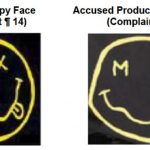The court’s opening paragraph pretty much says it all: This case is the latest in a string of lawsuits that Plaintiffs’ lawyers have brought in an attempt to hold social media platforms responsible for tragic shootings and attacks across this…

by guest blogger Glynn Lunney, Texas A&M Law School When our country was founded, one of the central issues was how much of their sovereignty the states would cede to the new federal government and how much they would retain…
King wrote a book, From Brooklyn to the Grave. King asked his ex-girlfriend, Thomas, to help edit and publish the book. Thomas published the book via Amazon’s CreateSpace. King claims that Thomas expropriated the manuscript and thus Amazon never had…

Wikipedia describes Laura Loomer as a “conspiracy theorist.” Twitter banned her in 2018. I previously blogged on Loomer’s unsuccessful antitrust case against Twitter and other social media platforms. In this lawsuit, she seeks to hold CAIR responsible for her Twitter…
This case is an interesting, but equally unmeritorious, variation of the many lawsuits seeking to impose “must-carry” obligations on UGC sites. The defendants are consumer review sites Angie’s List and HomeAdvisor. The lead plaintiff is a home contractor. It had…
I’ve repeatedly expressed concern for the viability of print-on-demand vendors due to potentially unmanageable IP liability. Unlike other Internet services, print-on-demand vendors do not get the full benefit of 512(c) because of their offline printing and shipping activities. Without 512(c),…

In September, in Enigma v. Malwarebytes, the Ninth Circuit issued a troubling Section 230(c)(2)(B) ruling that allowed plaintiffs’ allegations of anti-competitive animus to override the safe harbor for anti-threat software vendors. It was a 2-1 ruling on a key topic,…

This case involves the well-known “Nirvana Happy Face” drawn by Kurt Cobain in 1991 and registered in 1993. Marc Jacobs launched a “Bootleg Redux Grunge” clothing line (really??? who buys this shit?) that included an homage to the Nirvana Happy…

Salesforce provided SaaS services to Backpage. On that basis, the plaintiffs sought to hold Salesforce liable for any Backpage-caused sex trafficking victimization. This represents an attempt (possibly unprecedented) to impose tertiary liability for sex trafficking. The advertisers, such as pimps,…
Another judge denies an unmasking subpoena to Strike 3, even though the judge has previously issued subpoenas to Strike 3, and even though it may mean that Strike 3’s infringement case will fail and Strike 3 will be left without…
